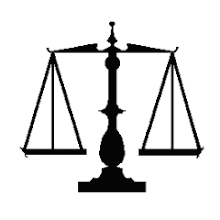
Despite finding that the US-based Internet search company had not broken European Union laws by selling ads that make use of trademarked terms, Tuesday's non-binding opinion by Advocate General Poiares Maduro said national courts could still take issue with Google's AdWords advertising service.
The case pits Google against French luxury products group Louis Vuitton Moet Hennessy (LVMH), which argued that some AdWords advertisements point to the sale of counterfeit products.
"Advocate General Poiares Maduro considers that Google has not infringed trade mark rights by allowing advertisers to buy keywords corresponding to registered trade marks," read a statement from European Court of Justice, the EU's highest court.
When Internet surfers use Google to search for keywords, the world's most popular search engine provides a list of relevant links, as well as advertisements on the right-hand side of the screen, which Google auctions to the highest bidder for a particular search term.
Louis Vuitton has objected to such a practice claiming that it violates its trademark. The advertiser's often less well-known name appears under a heading "sponsored links" next to the well-known brands.
Internet users expect ads
Bildunterschrift: Großansicht des Bildes mit der Bildunterschrift: LVMH didn't like seeing its links next to cheap rip-offs
Google "has not committed a trademark infringement by allowing advertisers to select, in AdWords, keywords corresponding to trademarks," Maduro said.
When selecting keywords, no product or service is being sold to the public, he said in the opinion, adding that consumers are aware of the fact that their searches will not provide only a link to the owner's Web site.
Accordingly, Internet users' access to information concerning the trademark should not be limited by the trademark owner, "even if it involves a trademark which has a reputation," the advocate general said.
Google lawyer Harjinder Obhi said the company noted the advocate general's opinion and was waiting for the European Court of Justice ruling, expected to come in a few months.
"We believe that selecting a keyword to trigger the display of an ad does not amount to trademark infringement, and that consumers benefit from seeing more relevant information rather than less," he said in a statement. "We also believe that consumers are smart and are not confused when they see a variety of ads displayed in response to their search queries."
Maduro pointed out that while the search engine is "a neutral information vehicle" applying "objective criteria" in order to generate the most relevant sites to the keywords entered, that is not the case with AdWords, "where Google has a direct pecuniary interest in Internet users clicking on the ads' link."
Consequently, national courts can decide whether content featured in AdWords does indeed violate a country's trademark rules.
The advocate general's opinion is non-binding but is generally followed by European courts.

No comments:
Post a Comment